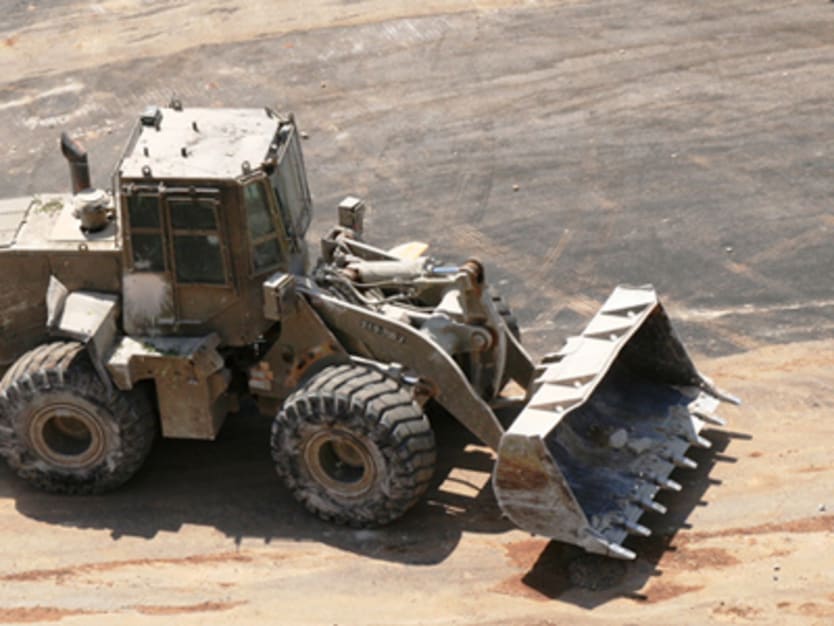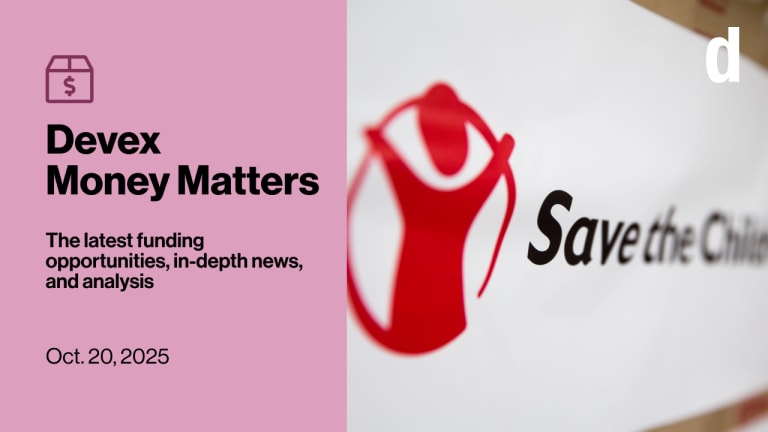
The ongoing demolitions of Palestinian homes and infrastructure in the occupied territories are frustrating aid groups, with many of them saying they have yet to see European officials’ rhetoric for the region translate into coherent action.
“It’s extremely frustrating,” Martin Hartberg, Oxfam’s policy adviser in Jerusalem, told Devex ahead of the publication on Monday of a report calling on the EU to exert the “right pressure” on Israeli authorities in control of the West Bank’s Area C.
The EU foreign affairs council released in May 2012 a strong statement calling on Israel to end demolitions of Palestinian homes and infrastructure, and speed up the approval of master plans meant to benefit an estimated 150,000 Palestinians living in the area. But a year later, more than 80 aid groups working in the occupied territories said “very little” has changed.
“The EU currently lacks a coherent response to preventing and responding to demolitions and displacement in the OPT,” they said in the report, published on the day EU foreign ministers are set to meet to discuss developments in the Middle East peace process.
In fact, according to the report, 30 EU-funded infrastructures for Palestinians were demolished in the past year, and none of the 32 EU-funded master plans submitted since 2009 to Israeli authorities have been approved.
Concerned aid groups compare those figures to the growing number of Israeli settlements in the area, “illegal” under international law. An estimated 613 new housing units for Israelis have been built in the past year alone.
“The council conclusions said it’s in the EU’s own interest to see a resolution to the conflict. That’s great. But what have [they] actually done in the past months?” argued Hartberg.
Recommendations
Hartberg said that the recommendations in the report are largely from the EU itself and deal with issues such as protecting their investments and allowing 18 months at most for master plan approval.
Indeed, when aid groups suggested demanding compensation for demolished aid projects, they were referring to the council conclusions noting the EU “expects such investment to be protected for future use.”
“We think the EU government should be asking for their money back, and say, we […] invested in incorporating the needs of the population […] so when those structures are demolished, that’s not acceptable,” Hartberg said.
But in aid groups’ conversations with European officials, “we don’t have evidence of that taking place in the past year,” he added.
This is already affecting donor commitments for Palestinian development, with many EU member states cautious about putting any money into Area C. “To date, less than half of EU member states currently invest any money at all in Area C,” notes the report.
Delays in the release of permits and approval of master plans are another issue. The report says the EU should proceed with aid projects if Israeli authorities fail to respond within the EU-established timeframe of 18 months.
“At some stage we need to make a decision. At the moment, Palestinians don’t have access to basic services, when they should be. How long is the EU willing to wait?,” Hartberg said.
EU leverage
The European Union is Israel’s largest trading partner, something that the EU can use in ensuring that its recommendations and policies are respected by the Israeli authorities.
“That is an extreme amount of political weight,” Hartberg suggested, adding that many European governments that have good relations with the Israeli government can also raise the issue of demolitions, diplacement and resource access.
This is however easier said than done, particularly for a rich country such as Israel. Good governance remains hard to impose even to countries to which the EU provides bilateral assistance.
Palestinians really don’t need aid agencies’ help, if only given freedom and access to basic services, Hartberg argues. “They can lead themselves. They don’t really need us, but restrictions are doing it,” he said.
The report tells the story of a farmer who owns a piece of land in Area C. In 2007, he built a cistern worth $11,000 to help irrigate his trees, but a convoy of Israeli army jeeps and a bulldozer allegedly demolished it last month, leaving him reliant on water delivered by trucks.
“I can’t afford to build a new cistern. so for now I will have to buy water brought by truck,” he said.
Ninety-four percent of Palestinian permits have been rejected in the past decade, which includes requests for residential structures, roads and water cisterns.
“Aid agencies on the ground see the consequences of not having access to these things. For instance, we are providing water in trucks, when the populations should have access to a water network,” said Hartberg.
Read more development aid news online, and subscribe to The Development Newswire to receive top international development headlines from the world’s leading donors, news sources and opinion leaders — emailed to you FREE every business day.








